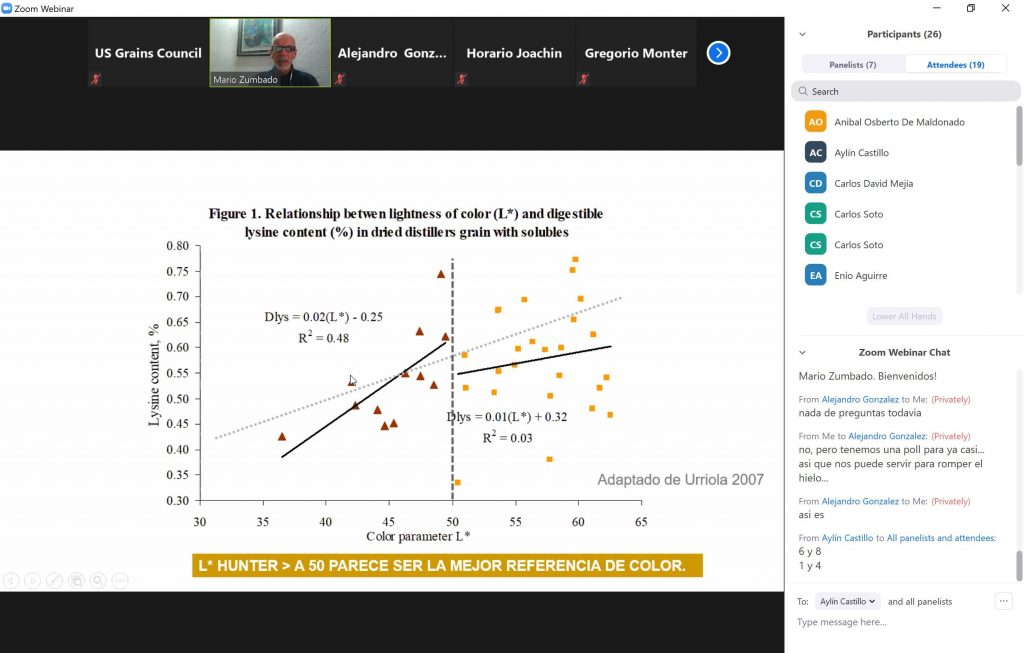Beef and dairy cattle, swine and poultry can all benefit from U.S. distiller’s dried grains with solubles (DDGS) in their feed rations, but the feed ingredient can be hard to purchase and store in smaller quantities for small- to medium-sized producers in Central America. To address these logistical needs and discuss the advantages of DDGS, the U.S. Grains Council (USGC) teamed up with a U.S. exporter for a recent webinar series.
“In Central America, many producers are limited in storage for DDGS and cannot sometimes access the smaller volumes of DDGS they need,” said Ana Ballesteros, USGC marketing director for Latin America. “U.S. exporters in the region can effectively serve these producers by importing, storing and distributing feed ingredients like DDGS.”
The Council conducted weekly webinars from mid-August to early September for interested producers in Guatemala, Honduras, El Salvador, Costa Rica and Nicaragua. Each session included a nutritionist with experience formulating or investigating DDGS usage for each species. The presentation detailed the nutritional benefits of DDGS, recommended inclusion rates and other relevant technical considerations.
More than 260 attendees tuned in for the webinar series – 41 percent for the poultry sessions, 32 percent for dairy and beef cattle and 27 percent for swine. The exporter reported that inquiries for DDGS by invited customers increased after the event.
“The virtual setting was important for reaching a broader base of producers,” Ballesteros said. “According to reports and surveys after the event, the Council achieved its goal of increasing awareness and interest in DDGS.”
The United States exported 320,000 metric tons of DDGS to Central America in the 2018/2019 marketing year with more room to grow. To realize this potential, the Council will continue to provide technical information about DDGS and partnered with regional players who can meet the specific logistical needs of small- to medium-sized producers.
“The Council regularly partners with regional players to promote coarse grains and co-products,” Ballesteros said. “The Council will continue conducting joint virtual and in-person efforts, as is advisable, to capture this potential market share for U.S. farmers and agribusinesses.”
Learn more about the Council’s work in Latin America.
About The U.S. Grains Council
The U.S. Grains Council develops export markets for U.S. barley, corn, sorghum and related products including distiller’s dried grains with solubles (DDGS) and ethanol. With full-time presence in 28 locations, the Council operates programs in more than 50 countries and the European Union. The Council believes exports are vital to global economic development and to U.S. agriculture’s profitability. Detailed information about the Council and its programs is online at www.grains.org.

